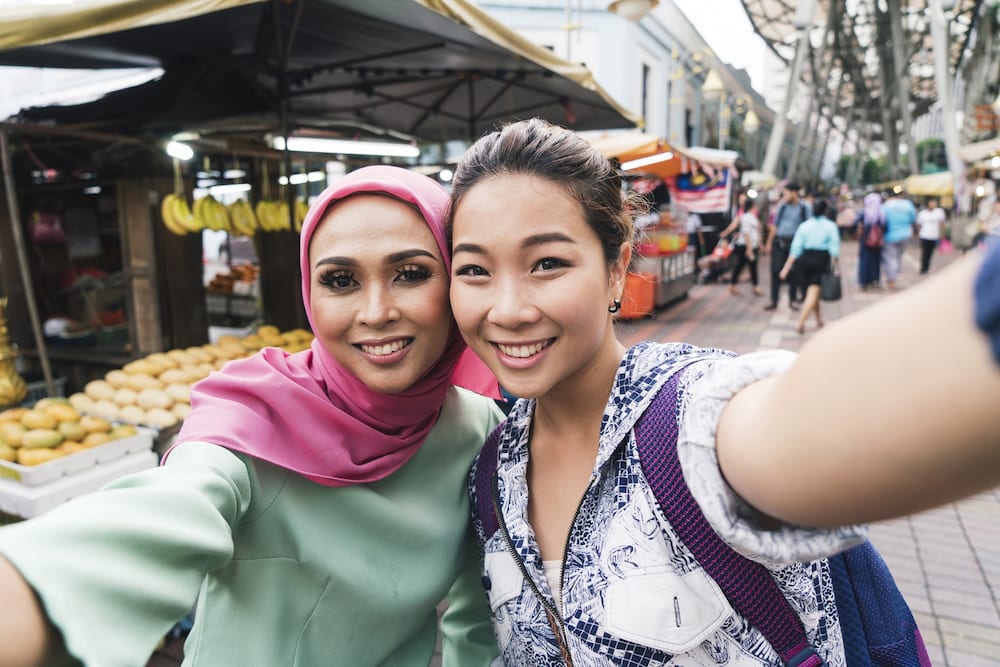From $45 billion in 2017, expect online travel purchases by Muslim jetsetters to increase to $180 billion by 2026, thanks to a more sophisticated digital landscape, says a recent report released by global payments company Mastercard and Halal travel and tourism think tank Crescentrating.
According to “Digital Muslim Travel Report (DMTR) 2018,” websites and other online travel products and services now play a vital role in enhancing the travel-planning experience for Muslims, especially when it comes to their faith-based needs.
The report is an extension of Mastercard and Crescentrating’s study last year on Muslim Millennial Travelers, or MMTs, whose online travel patterns have strongly influenced other generations’.
Research in DMTR states that while MMTs are still the driving force behind key digital travel trends, they are now no different from other generations—the Boomers, Gen X and Gen Z—who use digital tech similarly for their travel needs. Muslim travelers, the report adds, are also “global citizens” whose social media platform preferences and online behaviors are similar to non-Muslim travelers’, and that they use a good mix of desktop and mobile platforms based on the product types and preferences.
Given these key trends, the report says “destinations and service providers should adapt digital offerings and social media implementation for all travelers of all ages.”
They also “need to ensure that their messages reach Muslim travelers through both mainstream online channels and niche sites” which target this market, and that such channels should “be agile enough to appear properly in different platforms, and smart enough to promote the right content based on the user’s intention.”
“The Halal travel market continues to be one of the fastest growing travel segments globally, with Muslim visitor arrivals representing about 10 percent of the entire travel industry globally in 2017. Muslim travelers are spending more time online researching and comparing information before they finally choose and pay for their ideal travel experience. Mastercard works with like-minded partners to create tailored offerings for customers across a wide range of passion points,” says Devesh Kuwadekar, Mastercard’s vice president for market development.
Adds Fazal Bahardeen, CEO of CrescentRating and its sister company HalalTrip: “The DMTR 2018 reveals important online behavior and preferences of Muslim travelers.
It will equip tourism destinations, tour operators, airlines and other tourism and hospitality stakeholders with insights of online platforms and social networking services to evaluate the potential within the Muslim market. With the rapid proliferation of enabling online technologies and payment methods and the rise of Muslim digital natives, as a major segment within the Muslim travel market, the outlook for the digital space is very positive.”
DMTR also delves into the social-demographic and trip profiles of Muslim travelers in terms of the level of influence of digital tech on their outbound travel decisions and tourism experiences. Data for the study was obtained through an online survey conducted from August to October.
A few key findings:
Reasons for traveling, frequency and duration: Most Digital Muslim travelers say that they take trips for leisure (94 percent); to experience local culture and heritage (48 percent); and to visit relatives or friends (40 percent).
The majority (61 percent) travel two to three times in a year. On the average, their trips last four to six days.
Travel expenditure, arrangements: The majority of these travelers spend an average of $101 to $500 per component of their trip—flights, accommodation, meals, shopping, miscellaneous items (e.g. attractions, entrance tickets, local transport).
Most digital Muslim travelers also prefer arranging their own itineraries (63 percent), as opposed to having a travel agent do it for them.
Preferred destinations: Malaysia takes top spot as most common destination country (92 percent), followed by Indonesia (42 percent), and Japan (35 percent).
Use of digital: Mobile and laptops/desktops are the favored tools among digital Muslim travelers when researching accommodation, transportation, food and beverage choices, and attractions for their respective trips. Likewise, the majority of these users book services using mobile and laptops/desktops, and prefer that they be sent digital copies of their bookings.
Payment methods: Many still prefer to pay cash when traveling when it comes to transportation-, food and beverage, and attractions-related purchases. The only category where credit/debit cards are mostly used is accommodation, most likely because booking is done online, and therefore require card details for confirmation.
Connectivity and social media presence: Most digital Muslim travelers prefer to use a local SIM card which they purchase at their destinations (36 percent). Messenger apps are the kings of communication tools of this market (84 percent). Sharing of their travel experiences online mostly happen in real time, with the majority posting on social media (79 percent) and instant messaging platforms (71 percent).






























Young Muslims are the new untapped market! Everyone is talking about this
China may want to check the Uyghurs situation…